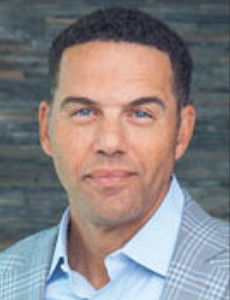This is the final installment of a four-part series taking an in-depth look at the changing role of HR leaders.
*
When the pandemic hit, Edward Jones CHRO Kristin Johnson says the financial services company had things well-situated, all things considered. It had the technology and strategies in place to allow its employees to work from home and to communicate with its clients with ease. But the biggest challenge it faced was making its employees feel connected in the new reality–a challenge Johnson took head-on.

“The biggest challenge we’ve seen is people wanting to be connected and people feeling more isolated,” Johnson says. “Typically, it’s people that maybe haven’t been working at home as much, myself included. I love going into the office and love seeing people.”
Related: How music is keeping this global company connected
Johnson began “coffee chats”–which she hosts twice a week with a partner from the organization for all of its 49,000 employees. The chats welcome different guests to talk about a variety of subjects–best practices on emotional health, for example, or a business topic for their branch teams. “It’s been great to see the response of people really valuing that we stay connected when they’re not physically able to be together.”
The coffee chat gets quite literal, too–it often includes a spotlight on employees’ favorite coffee mugs. “People will send pics of their coffee mugs and tell the stories behind it,” Johnson says. “It’s been a really fun way to bring a large community closer together in a fun, informal way.”
Steve Pemberton, chief human resources officer at software firm Workhuman, says his organization similarly hosts happy hours, yoga sessions and birthday and work anniversary celebrations–all virtually.

“It’s everything we would ordinarily do to provide comfort and relief,” Pemberton says. “It’s not only what we would do normally, but we’ve accelerated [those efforts] and doubled down on them.”
What will happen next in the COVID pandemic is anybody’s guess, but what is clear is that HR will continue to play a key role in managing its effects on the workplace. “What’s been so great about [how HR is reacting to the virus] is that HR leaders are bringing their leadership team along with them on this the journey,” says Jill Smart, president of the National Academy of Human Resources and former CHRO at consulting giant Accenture.
See also: The biggest risk facing HR leaders? Not taking enough risk
To be sure, the challenges of 2020 have elevated the role of HR, as leaders have stepped up to support employees and manage change. Because of that, Smart says, HR professionals will continue to have a larger influence even after the pandemic has passed.
“This catapulted them because it’s crisis after crisis after crisis, and they’re in the epicenter of that,” Smart says. “They have a chance to have a positive effect on their people and on their organization.”
*
Read part one in the series here, part two here and part three here.



